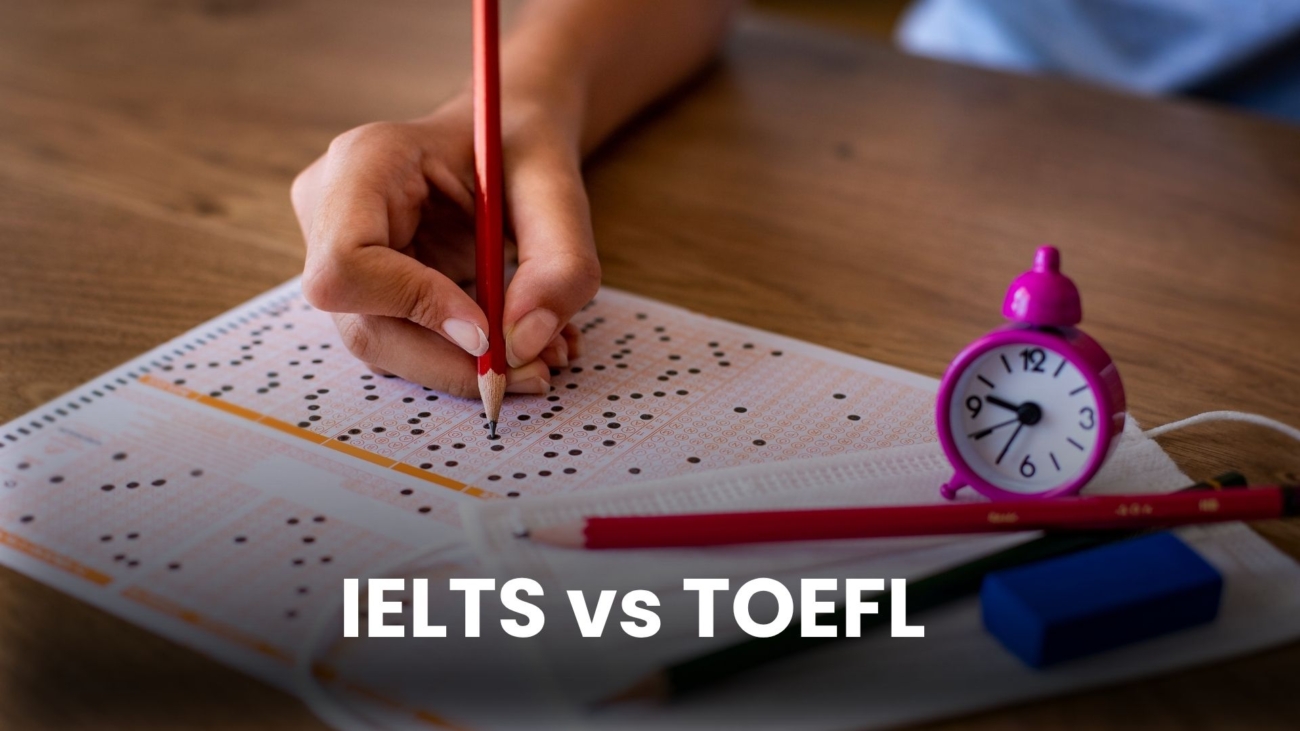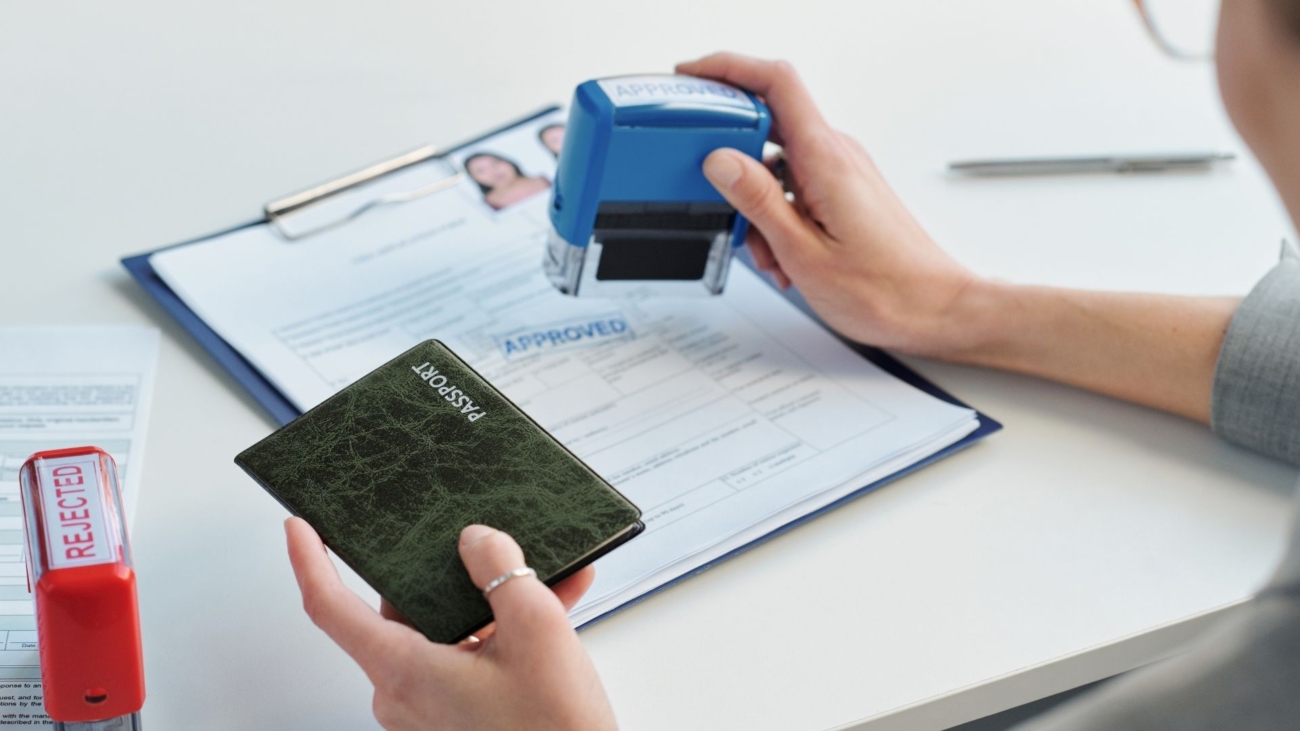Planning to study abroad in 2025? One of the most important steps is proving your English language proficiency, and the two most recognized tests for this purpose are IELTS and TOEFL.
But which one is right for you?
This guide offers a complete comparison of IELTS vs TOEFL—helping you choose the best test based on your destination, exam format, scoring system, and visa requirements.
What Are IELTS and TOEFL?
IELTS (International English Language Testing System) is a globally recognized English test accepted by over 11,000 organizations in more than 140 countries. It comes in two formats:
- IELTS Academic – for students
- IELTS General Training – for work, PR, or migration
TOEFL (Test of English as a Foreign Language), developed by ETS, is accepted by over 11,500 universities and institutions worldwide. The most common version is TOEFL iBT (Internet-Based Test).
Global Acceptance in 2025
Here’s a country-wise comparison of test acceptance for student visas:
| Country | IELTS Accepted | TOEFL Accepted | Notes |
|---|---|---|---|
| United States | Yes | Yes | Both accepted widely |
| Canada | Yes | Yes | Both accepted, but IELTS slightly more popular |
| United Kingdom | Yes | Limited | IELTS Academic or UKVI IELTS preferred for visas |
| Australia | Yes | Yes | Both tests accepted |
| Germany/EU | Yes | Yes | University-specific preferences may apply |
Key Insight: IELTS is the preferred test for UK and Australian student visas, while TOEFL is more common for US universities.
Test Format Comparison
| Section | IELTS Academic | TOEFL iBT |
|---|---|---|
| Reading | 3 long passages – 40 questions | 3-4 academic passages – 30-40 questions |
| Listening | 4 recordings – multiple-choice + notes | Lectures and conversations – multiple-choice |
| Speaking | Face-to-face interview (11–14 minutes) | 4 tasks via microphone – recorded responses |
| Writing | 2 tasks (150 & 250 words) | 2 tasks (integrated + independent essays) |
| Duration | Around 2 hours 45 minutes | About 3 hours |
IELTS Speaking is conducted in-person, while TOEFL Speaking is computer-based. Choose based on your comfort level.
Scoring System
| Test | Score Range | Minimum for Top Universities |
|---|---|---|
| IELTS | 0 – 9 band score | 6.5 – 7.5 overall |
| TOEFL iBT | 0 – 120 score | 90 – 100+ total score |
IELTS scores are reported in bands (e.g., 6.5, 7.0), while TOEFL uses a point system with four sections scored out of 30 each.
Test Availability and Cost (India – 2025)
| Test | Frequency | Cost (Approximate) |
|---|---|---|
| IELTS | Multiple times/month | ₹16,250 |
| TOEFL iBT | Multiple times/month | ₹16,900 |
Both tests are available in major cities and can be booked online.
Which Test Is Easier?
This depends on your skills and preferences:
Choose IELTS if:
- You prefer paper-based tests or face-to-face speaking
- You’re applying for UK, Australia, or Canada
- You are more comfortable with British/neutral accents
Choose TOEFL if:
- You’re applying to the US or prefer American English
- You’re comfortable with computer-based testing
- You like multiple-choice question formats
Student Visa Requirements
- UK Student Visa (Tier 4): IELTS Academic or IELTS for UKVI is mandatory for most universities.
- Canada: Both IELTS and TOEFL are accepted under the SDS (Student Direct Stream).
- Australia: IELTS, TOEFL, and PTE Academic are accepted. IELTS is often preferred.
- USA: TOEFL is widely accepted, though IELTS is gaining ground.
According to IDP and ETS, over 3 million IELTS tests and 2.3 million TOEFL tests were taken globally in the last year. This shows growing popularity and trust for both tests.
Conclusion
Both IELTS and TOEFL are excellent, widely accepted English proficiency tests. Your decision should depend on:
- Your destination country
- University/visa requirements
- Test format and personal preference
Before booking your test, check the official university and immigration websites to confirm which test is accepted.
If you’re still unsure, consult a certified immigration or education consultant to guide you based on your profile.










